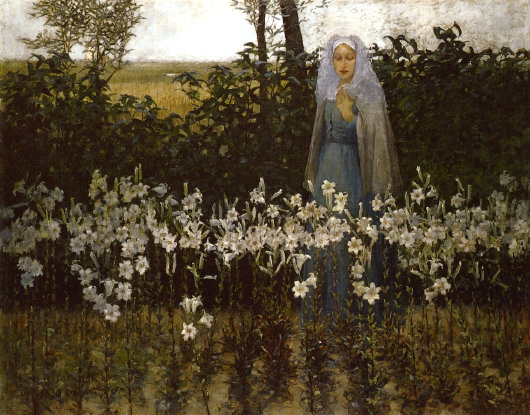2010
About Andrew Cusack
 Writer, web designer, etc.; born in New York; educated in Argentina, Scotland, and South Africa; now based in London.
Writer, web designer, etc.; born in New York; educated in Argentina, Scotland, and South Africa; now based in London. read more
News
Blogs
Reviews & Periodicals
Arts & Design
World
France
Mitteleuropa
Knickerbockers
Argentina
The Levant
Africa
Cape of Good Hope
Netherlands
Scandinavia
Québec
India
Muscovy
Germany
Academica
Outside Germany, Press Lack Interest in Odenwaldschule Abuse Scandal

Nestled in rustic style buildings amidst the hills of the Odenwald mountains, Germany’s most prominent progressive boarding school has become embroiled in the latest revelation of abuse in German schools. Almost the entire governing board of the Odenwaldschule has resigned after it was revealed that a culture of permissive abuse of schoolchildren was tolerated from 1966 to 1991, involving at least thirty-three victims and eight teachers, and perhaps more. The details of the case are too lurid for reproduction here, but involve the abuse of students by teachers and even a headmaster, as well as tolerating and sometimes encouraging the abuse of students by other students.
The Odenwaldschule was founded in 1910 by Paul and Edith Geheeb as one of the first schools devoted to “progressive education” in Germany. Amongst other novelties of the school, students were divided into “families” that spanned age groups and were headed by a teacher known as the “mother” or “father” of the “family”. Shut down during the Nazi period, it reopened after the war, and became a UNESCO model school in the 1960s. Among its former students is the Green MEP & former student radical Daniel Cohn-Bendit, who admitted in the 1970s to inappropriate contact with kindergarten students before backtracking after his previous comments were brought to light last year. The school’s progressive “holistic” ethos, emphasizing freedom over discipline, continues to this day. For the current 225 students, the cost of a year’s education at the Odenwaldschule is over $27,000, or £17,000.
The revelations are only the latest among many surrounding Catholic, Protestant, secular schools, as well as the schools of Communist East Germany. Outside Germany, however, the mainstream media have only taken an interest in whichever scandals or stories they can link back to Pope Benedict XVI, or, failing that, his brother Fr. Georg Ratzinger. No English-language media from outside Germany have bothered to report on the Odenwaldschule affair, except for the tiniest of mentions in the Guardian on 17 March.
The Legacy of von Hildebrand
Over at InsideCatholic, John Burger talks to John Henry Crosby, the founder of the Dietrich von Hildebrand Legacy Project. Readers will recall we attended a “festive evening” organised by the Legacy Project in 2008.
Prof. von Hildebrand was also involved in founding the Roman Forum, and places are still available for the Forum’s 2010 Summer Symposium in Gardone, Italy — about which everyone whose ever been raves unceasingly. The lectures and discussions on quite an array of subjects are listed in the daily program.
Socialism is Failing our Native Americans
John Stossel reports on the disastrous effect of government dependency on America’s native tribes, only the latest chapter in this country’s lamentable treatment of its first inhabitants.
Some Stocks Fall, Others Rise
In the first quarter of 2010, CNN’s flagship news anchors ratings dropped by fifty percent — half their entire viewership! The New York Times continues to slide towards bankruptcy and irrelevance (who wants to pay two dollars a day to be lied to?). Exhibiting a tremendous amount of cheek, the Times Company (which owns both the Times and the Boston Globe) threatened to shut the Boston Globe unless the staff agreed to $20 million in cuts. This year, the $20 million made by salary and benefits cuts across the board at the Globe were awarded in compensation to just two Times Company employees, Chairman Arthur Sulzberger and Chief Executive Janet L. Robinson. Meanwhile, the Company’s profits are collapsing along with its circulation and ad revenue, while its debt increases.
Not everyone’s stock is going down, however. Anna Arco reports a greater-than-usual surge in Mass attendance during Holy Week at the Stefansdom in Vienna, as well as at Westminster Cathedral and the Brompton Oratory in London.
The only advice one could dispense to CNN, the Times, et al. is the aphorism that he who marries the spirit of the age is soon widowed.
French Intellectuals Pen ‘Appeal to Truth’ In Support of Benedict XVI
A number of prominent French men & women have written a ‘call to truth’ supporting Pope Benedict XVI in the current media storm and pedophilia scandal. As the Appeal’s about page says, Pope Benedict XVI “is the first pope to address head-on, without compromise, the problem. Paradoxically, he is the subject of undermining and personal attacks, attacks relayed with a certain complacency on the part of the press”.
The list of original signatories includes writers, essayists, literary critics, bloggers, professors, philosophers, businessmen, senators, members of parliament, mayors, publishers, actors, a Protestant minister, a Fields medal winner, and even a sexologist.
The ‘Appel à la Vérité’ is reproduced, in an unofficial English translation, below:
The cases of pedophilia in the Church are, for all Catholics, a source of profound grief and great sorrow. From members of the Church hierarchy were, in some cases, serious deficiencies and failures, and we welcome the Pope’s wish to shed light on these cases.
With the bishops, and as members of the Church, lay Catholics bear the brunt of the crimes of certain priests and failures of their superiors; they fall firmly, as Christ taught, on the side of those who suffer most from these crimes, the victims, while praying for the culprits.
As for us, we hope with all our hearts that the whole truth comes out and all in the Catholic Church that could enable these offenses brought to Christ should be discussed calmly and amicably amongst all men and women of good will.
At the same time, we regret the runaway and provocative press that accompany these cases. Beyond the legitimate & democratic right to information, we can only note with sadness, as Christians but also as citizens, that many media in our country (and in the West in general) treat these cases with bias, ignorance, or delight. Shourtcuts in generalizations, the portrait of the Church which is currently done in the press does not match the experiences of Catholic Christians.
While reiterating our horror at the crime of pedophile priests and our solidarity with the victims, we urge the media to an ethic of responsibility that would undertake a more ethical treatment of these cases. The effects of runaway media are, by far, reserved to the Church, but we are tired of and battered by this thrashing. We think of so many priests who courageously, and sometimes in solitude, bear the message of Christ.
We are with them.
We welcome the letter from the bishops of France to Pope Benedict XVI, and wish to see the Catholic Church, with serenity and responsibility, through this painful ordeal.
This appeal was launched at the initiative of François Taillandier (writer), Frigide Barjot (humourist), Natalia Trouiller (journalist & blogger), Koz (blogger & lawyer), and Francis Miclo (philosopher).
Original signatories (31 March 2010):
Jacques Arènes (pyschoanalyst and writer)
Denis Badré (senator)
Frigide Barjot (humourist)
Jean-Marc Bastière (journalist and writer)
Claude Bébéar (honorary president of AXA)
Michel Boyancé (Dean of the Institut de France and comparative philosopher)
Rémi Brague (philosopher, member of the Institut de France)
Alexis Brézet (journalist)
Jean des Cars (writer)
François Cassingena-Trévedy (Benedictine monk, liturgist and writer)
Jean Chélini (historian, permanent secretary of the Académie de Marseille)
Ghislain du Chéné (international coordinator of Foi et Lumière)
Colette Combe (pscyhoanalyst and writer),
François Content (Director-General of the Fondation d’Auteuil)
Philippe Delaroche (writer, journalist)
Chantal Delsol (writer and philosopher)
Patrick Demouy (historian, university professor)
Bernadette Dupont (senator)
Bertrand d’Esparron (corporate communications manager)
Emmanuel Falque (philosophee and writer)
Olivier Florant (sexologist)
Jean-Christophe Fromantin (mayor of Neuilly-sur-Seine, businessman)
Réginald Gaillard (Editions de Corlevour)
Patrick de Gméline (historian)
Samuel Grzybowski (President/founder of the association Coexister)
Fabrice Hadjadj (essayist and playwright)
Rona Hartner (singer, actress)
François Huguenin (writer)
Vincent Hervouët (journalist)
Yvon Jacob (chief executive, former member of parliament)
Gaspard-Marie Janvier (writer)
Pasteur Alain Joly (Lutheran Church)
Patrick Kéchichian (writer and literary critic)
Koz (blogger and lawyer)
Louis-Etienne de Labarthe (editor-in-chief, Il est vivant)
Philippe de Lachapelle (director of the OCH)
Laurent Lafforgue (mathematician, winner of the Fields medal)
Gérard Leclerc (essayist, journalist)
Henrik Lindell (journalist)
Michael Lonsdale (actor)
Victor Loupan (editor, La Pensée Russe)
Jean-Baptiste Maillard (journalist, essayist)
Bruno Maillé (teacher, essayist)
François Maillot (Director-General, La Procure)
Jean-Luc Marion (philosopher, member of the Académie Française)
Jean-Pierre Marcon (member of parliament)
Nicolas Mathey (Professor of Law, Université de Paris V)
Jean-Pierre Machelon (Professor of Law, Université de Paris V)
Marc Mennessier (journalist)
François Miclo (philosopher)
Jean-Marc Nesme (member of parliament & mayor)
Philippe Oswald (journalist)
Xavier Patier (writer)
Patrice de Plunkett (writer and blogger)
Hugues Portelli (senator)
Jean-Frédéric Poisson (member of parliament)
Aymeric Pourbaix (journalist)
Guillaume de Prémare (communications consultant, Médias & Evangile)
Edmond Prochain (blogger, journalist)
Samuel Pruvot (journalist)
Jacques Rémiller (member of parliament & mayor)
Alina Reyes (writer)
Damien Ricour (actor)
Ivan Rioufol (essayist, journalist)
Catherine Rouvier (jurist, political scientist)
Jean Sévillia (journalist, writer)
Grégory Solari (editor)
Raphaël Stainville (journalist)
Denis Sureau (editor, theologian)
François Taillandier (writer)
Denis Tillinac (writer)
Henri Tincq (journalist and writer)
Hubert de Torcy (editor-in-chief, L’1visible)
Vincent Trémolet de Villers (journalist)
Natalia Trouiller (blogger, journalist)
Didier Truchet (Professor of Law, Université de Paris II)
Patrick Tudoret (writer)
Christian Vanneste (member of parliament)
François de Wendel (business executive)
The Passion of Pope Benedict: Six Accusations, One Question
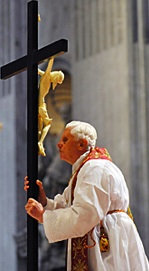 Pedophilia is only the latest weapon aimed against Joseph Ratzinger. And each time, he is attacked where he most exercises his leadership role. One by one, the critical points of this pontificate.
Pedophilia is only the latest weapon aimed against Joseph Ratzinger. And each time, he is attacked where he most exercises his leadership role. One by one, the critical points of this pontificate.
NOTE: For its combination of succinctness and clarity of thought, this piece by the most indispensable of Vatican-watchers, Sandro Magister of L’Espresso, deserves reproduction in full.
ROME, April 7, 2010 – The attack striking pope Joseph Ratzinger with the weapon of the scandal posed by priests of his Church is a constant of this pontificate.
It is a constant because every time, on different terrain, striking Benedict XVI means striking the very man who has worked and is working, on that same terrain, with the greatest foresight, resolve, and success. (more…)
Post Renovation
Every now and then I go back and renovate an old post. When this site started, posts had a maximum width of 440 pixels, which is why images tend to be narrower in older posts (such as this). Then, in December 2007, we broadened our horizon to 530 pixels wide, taking into account a move towards more horizontal aspect ratios on most computers. And so, from time to time, I go back to an old post and retro-fit it for 530px-wide from its former width.
The most recent post to undergo such a transformation is the one on the Felix Meritis in Amsterdam. Another is my bit on the Dahlgren townhouse on Ninety-sixth Street. Other than that, there have been only very minor renovations to posts, perhaps one or two images broadened.
Potsdam’s City Palace to be Resurrected

THE OLD STADTSCHLOSS of Potsdam, destroyed by aerial bombing during the Second World War, will rise again next to the Old Market in the Brandenburg capital. The provincial government has decided to rebuild the old Stadtschloss to serve as a home for the Landtag, Brandenburg’s provincial parliament. While it was first conceived of building a modern building on the site, or having some reconstructed façades and others modern, a €20-million donation from the software entrepreneur Hasso Plattner has ensured the façades and massing of the building will follow the outline of the old stadtschloss. The interiors will be simple and modern, and to keep the costs down, much of the finer Baroque detailing of the façades will not be included. “I hope,” Herr Plattner said, “that the necessary compromises do not diminish the great impression overall.” (more…)
Voorslag
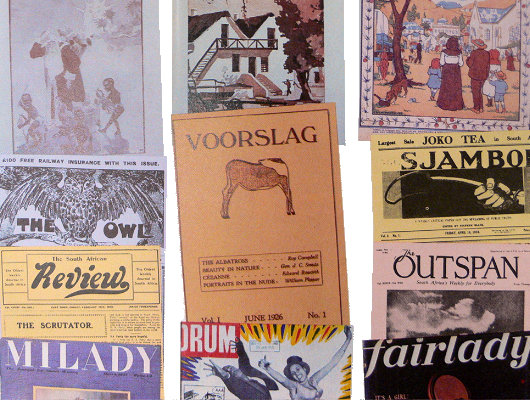
The richness and variety of South African periodicals printed during the first half of the twentieth century can surprise even the most devoted fans of the country. The circumstances at the bottom end of Africa were too particular to be overly influenced by the thought and talk of the imperial metropolis of London, and a miniature South African literary renaissance took place during the 1920s & 30s.
Among the publications one might stumble upon is Voorslag (“Whiplash”), founded by the poet Roy Campbell (who later moved to Spain, converted to Catholicism, and supported Franco during the Spanish Civil War). Campbell had returned to South Africa from England in 1924 in the hopes that his well-to-do relations in Durban might help support the struggling intellectual and his family. After finding financial backers, Campbell (with William Plomer and Laurens van der Post) launched Voorslag two years later in 1926. (more…)
The Blue Hussars
Ireland’s Mounted Presidential Escort
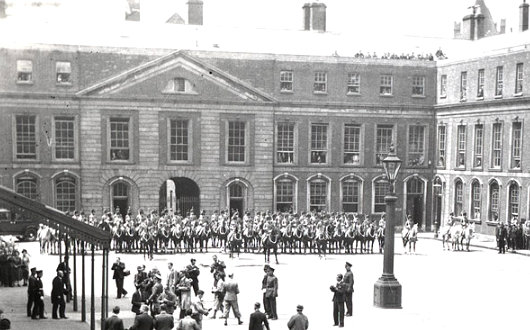
 WHEN BRITAIN FINALLY granted dominion status to Ireland, her longest-held possession, in the 1920s it unfortunately also signalled the end to a long tradition of Irish service in H.M. Forces. Well, this is not entirely true — thousands of Irishmen from both Ulster and the Republic continue to volunteer for the Army, Royal Navy, and RAF (the Royal Irish Regiment and the Irish Guards receiving the lion’s share) with an exemplary record of service to the Crown. But numerous other regiments with long lineages rolled up their colours in a dramatic ceremony at Windsor Castle in 1922. (An aside: one of those five regiments was the Connaught Rangers whose former name — the 88th Regiment of Foot — inspired the later re-designation of a New York Guard unit as the 88th Brigade NYG, of which yours truly is a veteran and my uncle the former commander).
WHEN BRITAIN FINALLY granted dominion status to Ireland, her longest-held possession, in the 1920s it unfortunately also signalled the end to a long tradition of Irish service in H.M. Forces. Well, this is not entirely true — thousands of Irishmen from both Ulster and the Republic continue to volunteer for the Army, Royal Navy, and RAF (the Royal Irish Regiment and the Irish Guards receiving the lion’s share) with an exemplary record of service to the Crown. But numerous other regiments with long lineages rolled up their colours in a dramatic ceremony at Windsor Castle in 1922. (An aside: one of those five regiments was the Connaught Rangers whose former name — the 88th Regiment of Foot — inspired the later re-designation of a New York Guard unit as the 88th Brigade NYG, of which yours truly is a veteran and my uncle the former commander).
The forces which became the Irish Free State Army, given their irregular nature, lacked a ceremonial tradition (though, had I been around and Michael Collins invited me to do so, I would’ve happily manned the desk in the IRA Office of Protocol, Ceremony, and Feathery Hats). In 1932, Dublin hosted the International Eucharistic Congress — a big event in those days, sadly reduced in stature — which meant that dignitaries of great importance would take this opportunity to visit the Irish capital. (more…)
The Institute for the Study of the Ancient World
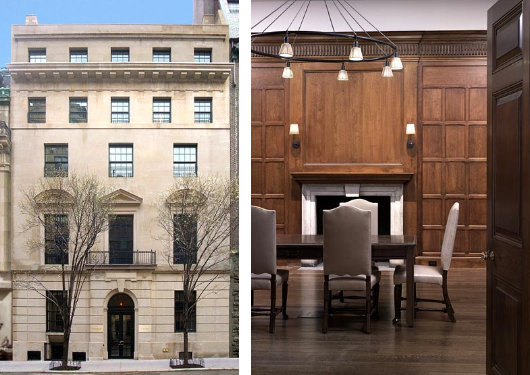
The Institute for the Study of the Ancient World commissioned Selldorf Architects, previously responsible for the renovation of the Neue Galerie on Fifth Avenue, to restore and upgrade the townhouse at 15 East 85th Street purchased to house the Institute. The house was built in 1899 but altered beyond recognition in 1928 after its purchase by Ogden Mills Reid, editor-in-chief of the New York Herald-Tribune. After the editor’s death, Mrs. Reid sold it to the American Jewish Committee, who used it as their headquarters until its sale to the Leon Levy Foundation, which endowed the creation of the Institute for the Study of the Ancient World at New York University in 2006. (more…)
La mort de la Librairie Française
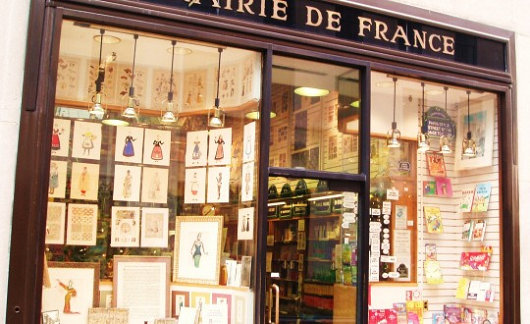
Among the unfortunate recent victims of Manhattan’s extortionately exorbitant rents is the Librairie Française. Last year the venerable New York institution had its rent raised from $360,000 to $1 million per year. The shop was founded in 1928 by Isaac Molho a Sephardic Jew from Salonika, who was invited by David Rockefeller himself to rent a space on the Promenade in Rockefeller Center in 1935. The Maison Française, in which the Librairie was located, flanked the south side of the Promenade, with the British Empire Building flanking the north — the bit of greenery in-between is called ‘Channel Gardens’ accordingly. The sign on the façade said ‘Librairie de France’ but in conversation I have never heard it referred to as anything other than the Librairie Française.
During the Second World War, the shop also operated a publishing house called La Maison Française that printed Gaullist propaganda as well as titles by French writers like Jacques Maritain, André Maurois, Jules Romains, and Antoine de Saint-Exupéry. It was the post-war period, however, in which the Librairie Française flourished. (more…)
Victory on the Fields of Coetzenburg

In anticipation of the annual commemoration of my birth, the University of Stellenbosch Rugby Football Club yesterday sailed to yet another victory in the FNB-sponsored Varsity Cup. Of course, a Maties victory is not exactly news — Stellenbosch is accustomed to victory, especially on the home turf at Coetzenburg (seen above). Indeed, Stellenbosch have won every Varsity Cup since the competition’s incarnation, which seems much less impressive when one points out this is only the third year of its existence. Nonetheless, to defeat the traditional rivals of the University of Cape Town — Maties and Ikeys are like Hatfields & McCoys — particularly warms the cockles of the heart. 17-14, not a bad score — the Ikey Tigers put in a good effort, but I am told UCT hasn’t beaten Stellenbosch in rugby for nearly 20 years. Impressive, considering that — despite being Ikeys — UCT manages to put up a good quad and make it to the final. (more…)
‘Love over Parliament House’
Persuant to our discussion regarding Scotland’s three parliament buildings, Scots Law News reports that the Caledonian scribe Alexander McCall Smith has been called to the Scots bar.
Scotland’s Three Parliaments
All of Them More Beautiful than the Current Parliament Building

IT IS ONE OF those curious aspects of Edinburgh: its multiplicity of parliament buildings. The Estaits of Parliament, as they were known in the old days — consisting of the three estates of prelates, lairds, and burghers — first met in the Great Hall of Edinburgh Castle in 1140, though the first gathering of which we have primary source material was at Kirkliston in 1235, during the reign of Alexander II. The body led a somewhat peripatetic existence, meeting wherever was convenient, and even met for a year in St Andrews, where the building which housed it is still known as Parliament Hall. Indeed, that august edifice is home to the proceedings of the Union Debating Society, where the germinal gasbags of Scotland, and indeed of all three kingdoms, first enter the fray of political discourse.
In 1997, nearly three-hundred years after the Parliament was abolished, it was decided to bring it back, albeit in much reduced form. Great were the rumours and discussions about what effect the return of legislative power might have on the country, and Edinboronians pondered where the body might be housed. There were obvious choices, and less obvious choices, but in the end the Westminster government decided to go for the choice that hadn’t been suggested at all and built one of the most heinous offences against the sensibilities of taste that the land has ever seen. And so, the fact is that Scotland has three beautiful parliament buildings, none of which it uses. (more…)
Cape Dutch California
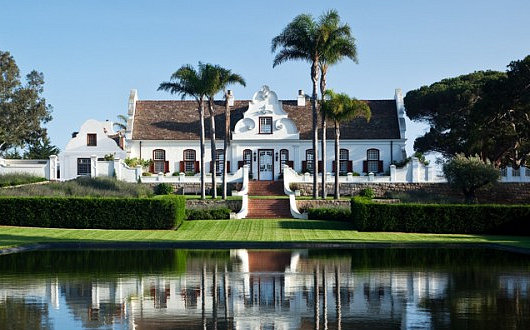
While this Cape Dutch mansion sits in the hills of Montecito in California, it bears the name (and style) of an old Cape Peninsula town. “Constantia” was designed by Ambrose Cramer (take a peek at his nifty grave) in 1929 for Arthur & Grace Meeker, with landscaping by Lockwood deForest, Jr. The Meekers sold the house to the architect Jack Warner. In the late 1960s, Stewart & Katherine Abercrombie bought the place, and hosted the Dalai Lama on one of his trips to the United States. It was the subject of a 1979 feature in Architectural Digest. The place is for sale, currently listed at $17,900,000. (more…)
“Lourdes”
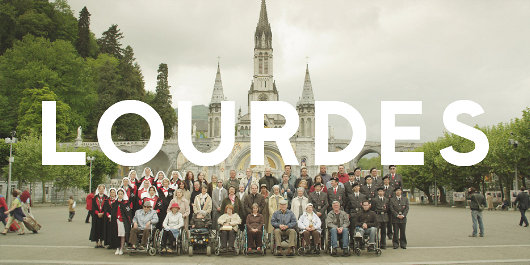
Various sources have brought to light the new film “Lourdes” by the Austrian director Jessica Hausner. The film depicts the pilgrimage to Lourdes of a non-particularly religious woman (played by Sylvie Testud) suffering from Mutiple Sclerosis who is healed of her illness. The film by a non-believing director has met with both praise and suspicion from Catholic quarters, and has been compared, at least stylistically, to the work of Michael Haneke (whose latest, “The White Ribbon” is currently showing in New York). Latest to weigh in is the Catholic Herald‘s indispensable Anna Arco, who writes:
I saw it as an exercise in theodicy where God loses. In a quiet dispassionate way, Jessica Hausner, the film’s Austrian director, paints a bleak picture of a world where fate is a blind, arbitrary force and human beings clutch at the straws of faith, half-truths in their cowardly despair. The suffering are not healed, human nature is selfish and the problem of pain is not solved. God can’t exist because he isn’t fair. Christianity offers a web of half-truths obscuring a nihilistic reality.
Miss Arco recently spoke with the director, and the interview will be published in the next Catholic Herald. (more…)
Alexander McCall Smith & the Sisters of Jaipur
The Scottish writer Alexander McCall Smith — noted for the fact that his books are actually a pleasure to read — pens a letter to readers every few months. In the latest letter, he mentions that he recently attended the Jaipur Literary Festival in Rajasthan’s famous “Pink City”:
But the visit to Jaipur was not all literary festival. My wife and I paid a visit to the Mother Theresa Home in the city, which was, as you can imagine, a very moving experience. Over two hundred residents, most of them with nowhere else to go, no possessions, and no money, are looked after by some seven sisters. These sisters are tireless – completely tireless – and give their lives over to the living care of these abandoned people.
At a time when the Catholic Church is coming under severe criticism for its failures (which have been, understandably, very much in the news), we should perhaps remember the extraordinary work of people such as the nuns of this community, who have done so much to bring love into the lives of those who have nothing and who would otherwise die alone and uncared for. I cannot tell you how moved I was by what I saw and by my conversation with the nuns.
An apposite reminder.
If you haven’t yet read Prof. McCall Smith’s 44 Scotland Street series, I suggest you float down to your nearest bookseller and purchase the first installation (handily titled 44 Scotland Street) today. They are a procession of delightful stories surrounding a number of fictional characters in an Edinburgh townhouse, and if you’re familiar with the capital city, you might just come a cross the occasional non-fictional friend interspersed amongst the creations of McCall Smith’s mind.
Rumblings in Beckistan
First, I noticed that Herr Beck labelled your humble & obedient scribe as “my impossibly bizarre former colleague” and a “living anachronism”. The context was largely complementary, as Beck expressed his certainty that I could enlighten him further upon the subject of Ember days (which of course I can, but won’t). But then I noticed a more subtle — and yet simultaneously all-too-blatant — anti-Cusackian dig in his piece on Ted Gioia’s The Birth (and Death) of the Cool in B&N Review:
Ceremonial maces?!? While six of those seven terms are undoubtedly aimed at other individuals, there is no way that this mention of one of my particular areas of expertise can be construed as anything other than a mischievous and deliberate anti-Cusackian provocation by the forces of Beck. I questioned the son of Granby seeking the meaning behind such an act, but in his inimitably mysterious fashion he emitted a soft, false laugh and faded back into the folds of the evening mist.
The real reason for Beck’s act of aggression is simple: he’s envious of my having been published in the Quarterly Journal of the Guild of Mace-bearers of England & Wales. He’s likely further miffed that I attended the university with the finest collection of medieval maces in the world, while he was stuck sacrificing holly-crowned virgins to Wotan in the wilds of New Hampshire. There you have it: mace-envy, the latest vice of today’s jaded youth.
Those of you unfamiliar with Stefan Beck’s work are all the poorer for it. Just the other day I was speaking with the ever-delightful Allison Burbage, who was searching for unfamiliar books to read. I directed her to Stefan Beck’s demi-annual Fiction Chronicle in the pages of The New Criterion to steer her in the right direction. In the future Mr. Beck best watch his back — we members of what I like to call the ceremonial mace enthusiast community are skilled in the sophisticated art of retaliation.
Search
Instagram: @andcusack
Click here for my Instagram photos.Most Recent Posts
- Bicycle Rack April 29, 2024
- Burns Tower April 19, 2024
- Patrick in Parliament March 18, 2024
- Articles of Note: 13 March 2024 March 13, 2024
- Cambridge March 9, 2024
Most Recent Comments
Book Wishlist
Monthly Archives
Categories

